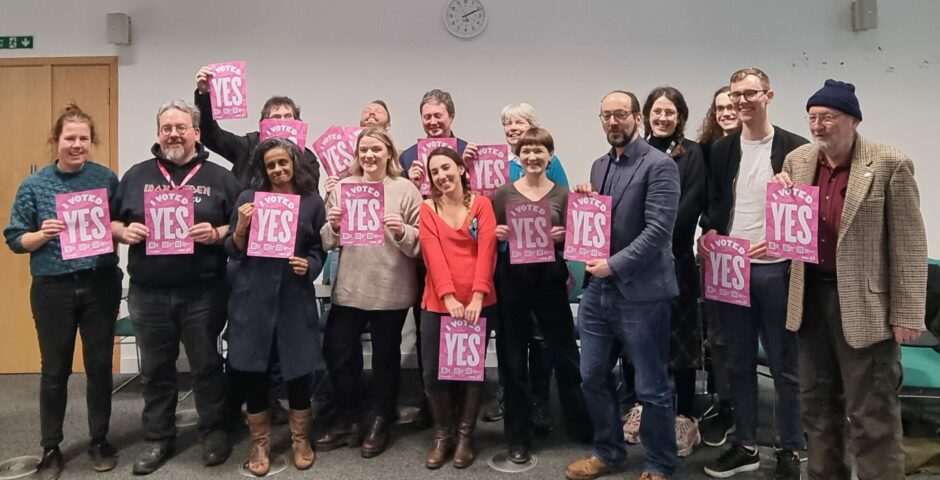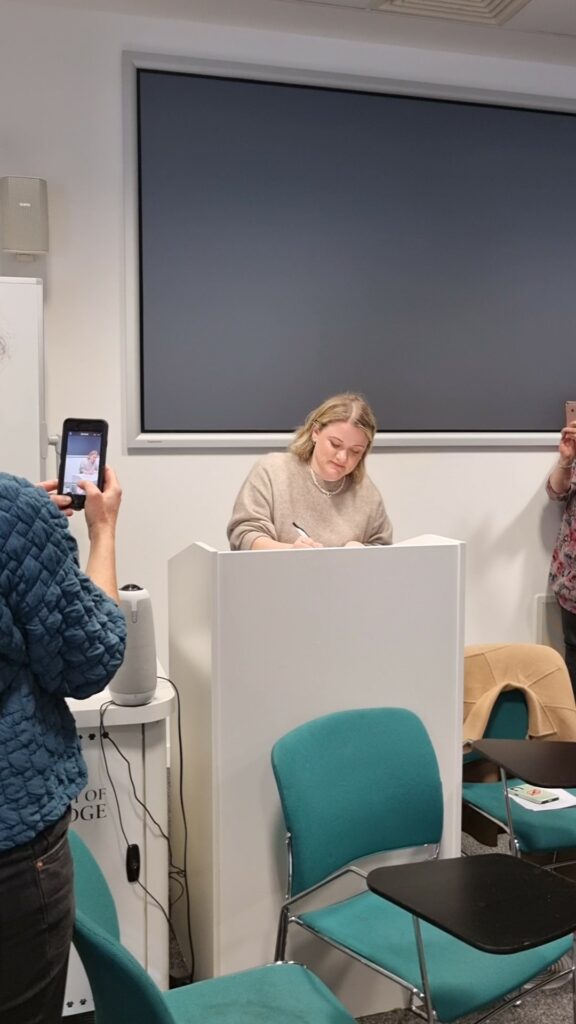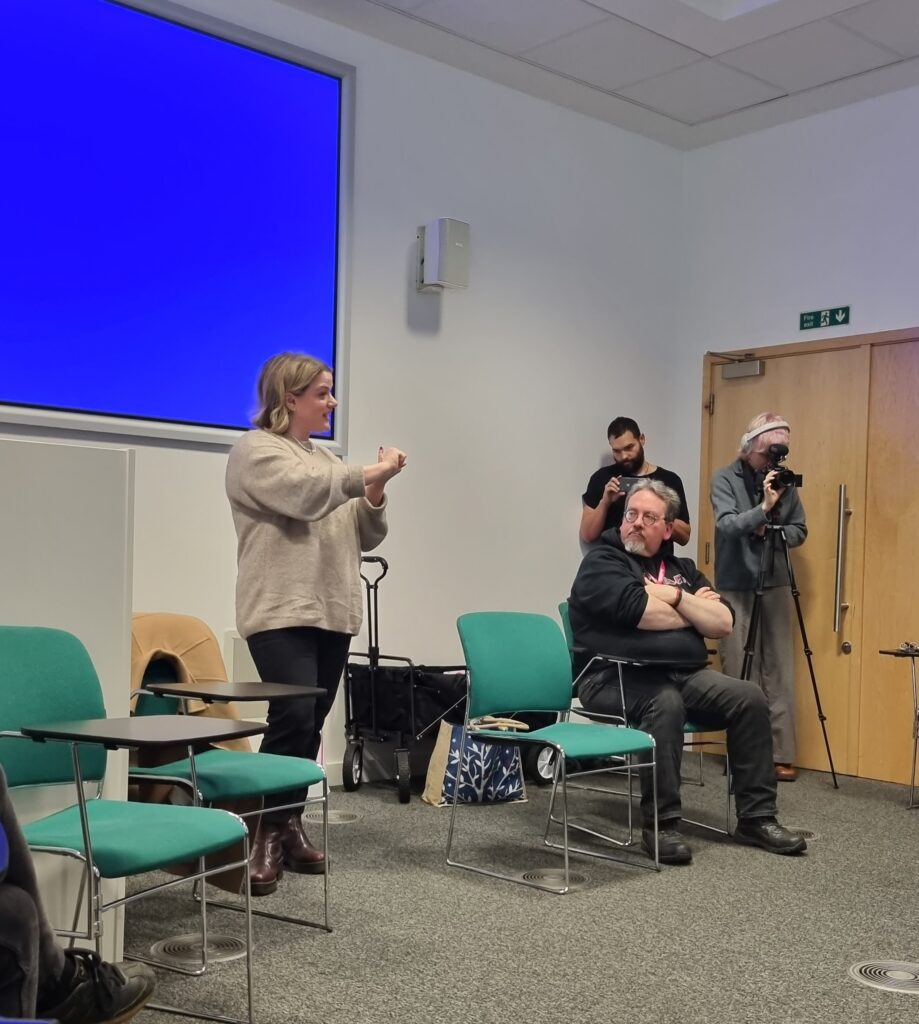
UCU General Secretary visits Cambridge to sign ‘historic’ Recognition Agreement
Dr Jo Grady met supporters to discuss progress in negotiations and sign historic agreement with the university
The UCU’s General Secretary made a visit to Cambridge on Friday 10th March as new strike action looms on the horizon. The meeting was open to all but was predominantly attended by dedicated members of the UCU, veterans of the picket lines that have become a common sight in the university.
The purpose of the meeting was the signing of the new UCU Recognition Agreement which has been made with the University of Cambridge, meaning that the union is now able to enter into formal negotiations with management. The agreement allows for negotiations covering all staff groups, including academic, research, and professional staff.
A UCU spokesperson described how this agreement brings the union “into alignment not only with Unison and Unite within Cambridge, but with every other branch in a public university in the UK.”
A spokesperson for Cambridge University has said: “The University has been actively engaged in talks with the University and College Union (UCU) in connection with its request for voluntary recognition, and also with Unite and Unison about expanding the current scope of their recognition by the University. These new recognition agreements will now go to the University for ratification.”
Meanwhile, Cambridge’s UCU branch president Michael Abberton said: “It’s fantastic to be celebrating some good news, a long-fought victory even in the context of the current national dispute. It shows even after a long campaign we have the capacity to win.”
Before she signed it, Dr Grady took a moment to thank all those involved in the fight for better pay and pensions in higher education. Dr Grady reminded onlookers that an agreement of this nature has never happened before in Cambridge. So far conversations like these have been behind closed doors.

Dr Joe Grady signing the Recognition Agreement (Image Credits: Finton Hanks)
Although the agreement was the supposed focus of the meeting, it only took a few minutes at the end of the meeting. The majority of the event consisted of an update from Dr Grady about the progress of negotiations so far and possible future actions. To a room full of UCU members who have been fighting for their pay, pensions, and employment rights this was an important and clearly long-awaited update.
Broken down below are the key issues that Jo Grady addressed:
Reballot campaign and the possibility of more strikes
This visit comes amidst an important reballot campaign. To call a strike the UCU needs a mandate from its members which is achieved with a ballot. The UCU has recently called for a renewal of this mandate which would allow them to extend strike action into summer.
Dr Grady proclaimed that “we still need a strong result in our reballot”. The upcoming vote is crucial to continuing negotiations with universities. She was keen to emphasise that this ballot was not asking people to strike until September, but merely empowering the UCU to hold that possibility over employers’ heads.

A reballot campaign poster handed out at the meeting
The optimism of the UCU was evident with Grady proclaiming “we are going to win this ballot”. Hopes for higher voter turnout among UCU members could bolster the UCU ‘s mandate and send a clear message to employers that academics and university staff are committed to their fight. The reballot could provide valuable leverage in further negotiations, providing an incentive for universities to follow through with their plans. Despite this, Grady’s anger toward universities was clear: there is “no trusting our employers in this situation” she warned.
Effects of the pause
Recently a pause to strikes was called, seeing lectures return to normal for many students in Cambridge, as negotiations occurred between the UCU and university employers. Dr Grady praised this measure as “really effective”. Strikes are however due to resume on the 15th on this month, with this date having been recently added.
Assessment/marking boycott?
The worry for many students is how the strikes might affect end-of-year exams, and possibly the integrity of our final degrees. Dr Grady made it clear that at the moment the reballot was far more worrying to employers than an assessment boycott. She explained that many institutions may have contingencies in place to circumvent any such boycott anyway.

Dr Grady answering questions about an assessment/marking boycott (Image Credits: Finton Hanks)
Progress in negotiations on pensions and pay
Much of what Dr Grady discussed was the progress of recent negotiations.
Essentially, pension negotiations are carried out between the UCU and UUK (Universities UK). It seems likely that pensions could return to similar levels as they were in April of 2022 before the cuts. However, change to pensions “can’t happen overnight”, and the threat of universities backsliding remains.
In the realm of pay, things were slightly more complex. Negotiations are ongoing between the UCEA and a number of unions: EIS, GMB, UCU, UNISON, and Unite. Casualisation is a pressing issue in Cambridge specifically, as many workers are on zero-hour contracts, for which Dr Grady has had to “rinse Oxford and Cambridge.” Negotiations on pay are currently at an impasse.

Dr Grady updating UCU members on negotiation progress Dr Grady answering questions about a assessment/marking boycott (Image Credits: Finton Hanks)
Academics in the room were also keen to hear about agreements around workload. In Cambridge, there is currently no workload model, according to one member of the audience. In this area Dr Grady was insistent the UCU was close to a tangible agreement that could mean a system of pay based more on lived hours.
Finally, there was a recognition that there was much more ground to be made on equalities pay. Although there is room for improvement, the General Secretary was insistent that the progress made in the past month was unprecedented.
It was a long meeting which has important implications for all involved. For UCU members this was about the future of how they make a living. For students, the possibility of further disruptions looms. For the University, negotiations remain and agreements are yet to be finalised. Dr Grady was adamant that the UCU was “on the brink of doing something no other union has.”
Strike action will continue, but there was a clear sense today that we are edging toward significant changes.
A spokesperson from the UCU provided the following statement: “While UCU members are obviously primarily concerned in these disputes about their pay and pensions, about workload and equality and fair contracts and an end to casualisation, there is no triumph at the thought of students’ education suffering. Our students are not only a huge part of why we do our jobs but they are also future education professionals themselves – or indeed already teaching in insecure and underpaid roles, taking part in this campaign too.
We look forward to more news from UCU negotiators about what progress has been made in negotiations during the “pause” but are ready to be back on the picket lines tomorrow, and continue to call for every member to vote in the reballot.”
Feature image credits: Finton Hanks









































